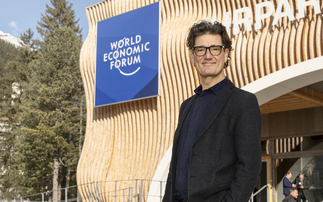The BusinessGreen guide explores the pledge to 'promote sustained, inclusive and sustainable economic growth, full and productive employment and decent work for all'
Targets
8.1 Sustain per capita economic growth in accordance with national circumstances and, in particular, at least 7 per cent gross domestic product growth per annum in the least developed countries.
8.2 Achieve higher levels of economic productivity through diversification, technological upgrading and innovation, including through a focus on high-value added and labour-intensive sectors.
8.3 Promote development-oriented policies that support productive activities, decent job creation, entrepreneurship, creativity and innovation, and encourage the formalization and growth of micro-, small- and medium-sized enterprises, including through access to financial services.
8.4 Improve progressively, through 2030, global resource efficiency in consumption and production and endeavour to decouple economic growth from environmental degradation, in accordance with the 10-year framework of programmes on sustainable consumption and production, with developed countries taking the lead.
8.5 By 2030, achieve full and productive employment and decent work for all women and men, including for young people and persons with disabilities, and equal pay for work of equal value.
8.6 By 2020, substantially reduce the proportion of youth not in employment, education or training.
8.7 Take immediate and effective measures to eradicate forced labour, end modern slavery and human trafficking and secure the prohibition and elimination of the worst forms of child labour, including recruitment and use of child soldiers, and by 2025 end child labour in all its forms.
8.8 Protect labour rights and promote safe and secure working environments for all workers, including migrant workers, in particular women migrants, and those in precarious employment.
8.9 By 2030, devise and implement policies to promote sustainable tourism that creates jobs and promotes local culture and products.
8.10 Strengthen the capacity of domestic financial institutions to encourage and expand access to banking, insurance and financial services for all.
8.A Increase Aid for Trade support for developing countries, in particular least developed countries, including through the Enhanced Integrated Framework for Trade-Related Technical Assistance to Least Developed Countries.
8.B By 2020, develop and operationalize a global strategy for youth employment and implement the Global Jobs Pact of the International Labour Organization.
Progress to date
Progress against every target set out under SDG8 is continuing, but there are worrying signs that rates of improvement across several key metrics have slowed in the wake of the 2008 financial crisis.
General GDP per capita growth remains solid, with the global average annual growth rate for real GDP per capita hitting 1.6 per cent between 2010 and 2015, up from 0.9 per cent for the previous five years. However, in 2016 global growth only reached 1.3 per cent and the longer term trend amongst the least developed countries (LDCs) also raises cause for concern. The average annual per capita growth rate for LDCs rose from 3.5 per cent between 2000 and 2004 to 4.6 per cent between 2005 and 2009, but it then slowed to 2.5 per cent from 2010 to 2015. Overall average annual GDP growth in the least developed countries followed a similar trend, decelerating from 7.1 per cent in 2005-2009 to 4.9 per cent in 2010-2015, well below the Sustainable Development Goals target of seven per cent.
Improvements in labour productivity experienced a similar slowdown. The annual growth rate of real GDP per worker dropped from an average annual rate of 2.9 per cent from 2000 to 2008 to 1.9 per cent from 2009 to 2016. The UN's assessment is stark: "The slowdown represents a negative development for the global economy, with adverse effects on living standards and real wages." However, more recent data points to an encouraging uptick last year with labour productivity growing 2.1 per cent in 2017, the fastest growth registered since 2010.
Progress in tackling unemployment follows a similar trajectory. The global unemployment rate has improved significantly from 6.4 per cent in 2000 to 5.6 per cent in 2017, but again progress has been slower since 2009. Youth unemployment also remains a major challenge with young people three times more likely to be unemployed than older people and youth unemployment rates hitting 13 per cent globally.
Moreover, even where people are in employment that work often fails to meet development goals. Globally fully 61 per cent of workers were in informal employment in 2016 and as such were at risk of "decent work deficits" and working poverty. In almost all cases rates of unemployment and low pay are worse for women than men.
The number of children engaged in child labour has fallen sharply from 246 million in 2000 to 168 million in 2012 and progress continues, but more than half of those still facing child labour are estimated to be working in hazardous occupations.
Access to banking services has improved globally, aided by the development of digital financial services. However, the most recent data found that while access to bank accounts is nearly universal in industrialised economies only 35 per cent of people in low income economies hold an account.
Business implications
For both businesses and the wider sustainability sector SDG8 is one of the hardest to navigate, and yet it could still have major implications for corporations around the world.
The targets' focus on economic growth and their use of GDP as their main metric glosses over the whole lone-running debate over the difference between economic growth and sustainable economic growth, as well as the debate over whether blunt GDP figures are a useful measure of progress.
Similarly, the goals' simple focus on labour productivity and employment has nothing to say about emerging trends in automation and the nascent debate about whether political and business leaders' understanding of work will have to evolve in the coming decades, as technology develops and environmental constraints bite.
As such SDG8 is the goal that carries with it the biggest risk of entrenching current economic models that prioritise short term boosts in GDP and employment over long term shifts to sustainable approaches that can deliver more sustained green growth and job opportunities.
However, there are also targets that have direct and broadly positive implications for green businesses. For example, target 8.4 and its stated goal to improve "global resource efficiency in consumption and production and endeavour to decouple economic growth from environmental degradation" through to 2030 is a ringing endorsement of circular economy thinking.
Meanwhile, pledges to tackle workplace discrimination and the gender pay gap, end child labour and forced labour, and improve access to financial services all point to improved policies in these areas and increased pressure on businesses to enhance employment practices and strengthen safeguards throughout their supply chains.
Business risks
The risks for businesses associated with SDG8 arise from the wide-ranging nature of the economic growth and employment targets and any failure to respond to the policy measures that are likely to result from the more specific targets on working practices and resource efficiency.
Most businesses would instinctively argue that continued economic growth can be made sustainable and reliant on circular resource flows in such a way that it will not inevitably smash into physical and environmental limits at some point in the future. They are also likely to contend that GDP may be an imperfect metric thanks to its failure to distinguish between sustainable and unsustainable activity, but it remains a useful proxy for measuring economic performance.
However, the risk for businesses keen to pursue sustainable development remains that the blunt use of real GDP growth per capita as the primary metric for measuring progress against SDG8 steamrollers all other metrics, as has so often been the case in the past, leading to a prioritisation of policies that boost GDP in the short term without adequate consideration of their long term consequences.
Similarly, the failure to define 'decent job creation' leaves open the possibility of policies that prioritise the defence of jobs in unsustainable industries and a failure by policymakers to adjust to the challenges and opportunities rapid advances in automation will bring.
More specifically, the target to improve global resource efficiency and pursue "sustainable consumption" could present a major challenge to businesses that continue to operate through a linear extract-manufacture-use-dispose resource model. The likely tightening of standards and imposition of new resource taxes could have a major impact on those industries that fail to embrace more circular resource flows.
Finally, the targets' focus on equal pay and improved labour rights suggest an acceleration of the trend that has already seen many businesses face legal action and reputational damage over everything from workplace discrimination to supply chains where child or forced labour are found to occur.
Business opportunities
The counter argument to any concerns about the risks associated with GDP growth for sustainably-minded businesses is that GDP growth does, by definition, create more commercial opportunities.
Similarly the supporting targets 8.3 and 8.4 to "achieve higher levels of economic productivity through diversification, technological upgrading and innovation, including through a focus on high-value added and labour-intensive sectors" and "promote development-oriented policies that support productive activities, decent job creation, entrepreneurship, creativity and innovation, and encourage the formalization and growth of micro-, small- and medium-sized enterprises, including through access to financial services" are arguably two of the most pro-business targets in the entire SDG portfolio.
Delivered effectively these targets herald sustainable industrial policies that drive the development of highly innovative and balanced economies that allow businesses to prosper in pursuit of wider sustainable development goals.
More specifically, SDG8.10 focus on expanding access to financial, banking, and insurance services in emerging and developing economies promises to accelerate the development of one of the world's most important industries and unlock rapid progress in multiple other sectors.
Similarly, SDG8.9's pledge to "promote sustainable tourism that creates jobs and promotes local culture and products" promises to create new opportunities to the tourism industry as long as it can adapt to ever more demanding sustainability standards.
Targets to deliver equal pay, end workplace discrimination, and tackle forced labour may all lead to higher costs in the short term, but they also provide businesses with an opportunity to guard against reputational damage, boost productivity, improve skills bases, and aid development and the advance of human rights, creating new markets in the process.
Finally, SDG8's focus on labour and resource productivity holds out the potential for significant cost savings for businesses that invest in enhancing their productivity, as well as the creation of entire new industries through the advance of circular economy business models. SDG8 is one of the areas where one of the core messages from the SDGs is most obvious: unsustainable industries are ultimately unsustainable and as such sustainable development paths are the only logical option.









